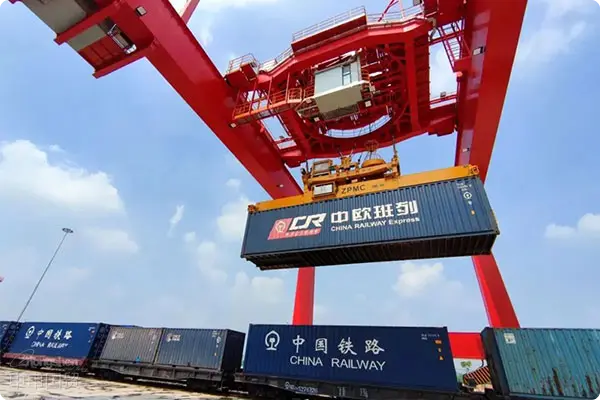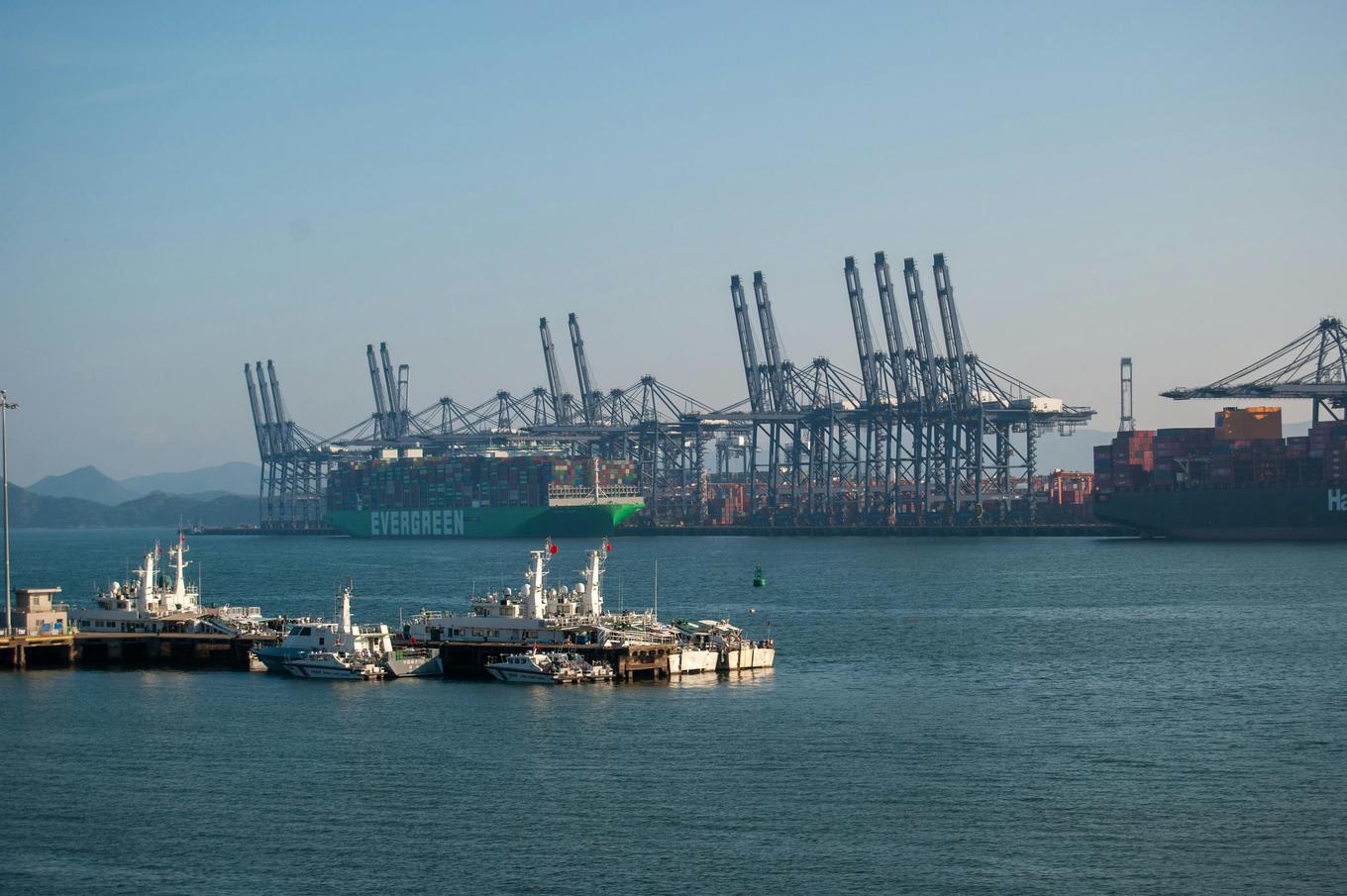- Shanghai Zhongshen International Trade Co., Ltd. - Two decades of trade agency expertise.
- Service Hotline: 139 1787 2118

Introduction
Within the broader landscape of global trade, importing refrigeration equipment from Japan has become a business choice for many enterprises. Whether its Japans advanced refrigeration technology or its diverse range of refrigeration products, buyers from all over the world are attracted. However, the import process is not always smooth, involving document processing, logistics arrangements,FX Settlement Agencymethods, and product certification, among many other steps. Next, we will provide a detailed analysis of the key points related to importing refrigeration equipment from Japan.
ZhongShen International TradeProfessional Capabilities: Documentation Processing and Logistics Arrangements
Documentation Processing
When importing refrigeration equipment, the accuracy and completeness of documents are crucial. Zhong Shen International Trade has extensive experience in document processing. First is the commercial invoice, which meticulously records key information such as the description, quantity, and value of the refrigeration equipment, serving as an important basis for customs taxation. We assist clients in ensuring that invoice content is clear, accurate, and compliant with international trade regulations.
The bill of lading is also one of the indispensable documents. For refrigeration equipment imported from Japan, whether its aMaritime Transportationa bill of lading orAir Transportationbill of lading, we can handle it proficiently. The bill of lading is proof of cargo ownership, and we pay attention to all its clauses to ensure clients maintain control over their goods. At the same time, the packing list should not be overlooked; it details the specific contents of refrigeration equipment within each package, facilitating customs inspection and consignee verification.
In addition,It is recommended to verify through the following methods:certificate is crucial for enjoying preferential tariff treatment. If Japanese refrigeration equipment meets the relevant rules of origin, we will assist clients in obtaining valid certificates of origin, thereby reducing import costs. When processing these documents, we strictly adhere to the requirements of various national customs authorities, ensuring consistency among documents to avoid cargo detention or delays due to documentation issues.
Logistics Arrangement
The logistics stage directly affects whether refrigeration equipment can reach its destination on time and safely. For imports from Japan, common transportation methods include sea freight and air freight. If the cargo volume is large and time requirements are not particularly urgent, sea freight is a more economical option. We maintain good cooperative relationships with many well-known shipping companies, enabling us to secure more favorable freight rates and suitable shipping schedules for our clients.
During sea transportation, we pay attention to the cargos packing method. For precision products like refrigeration equipment, appropriate packaging and securing measures are used to prevent damage from bumps during transit. At the same time, we track the cargos transportation status and provide timely feedback to clients. If clients have higher time requirements, air freight is a better choice. We are familiar with the routes and capacities of major airlines and can quickly arrange air freight for goods, ensuring rapid delivery of refrigeration equipment.
In addition to international transportation, we also provide one-stop solutions for domestic distribution services. Whether its transporting goods to a warehouse or directly to a clients designated location, we can complete it efficiently, ensuring the smooth flow of the entire logistics chain.
Characteristics and Strategies for Different Markets
I. Pre - export Preparation
Russia, as an important trade market, has a significant demand for refrigeration equipment. When trading with Russia, the settlement method is a key factor. Zhong Shen International Trade has a unique advantage for the Russian market: convenient VTB settlement.
VTB Bank is an important financial institution in Russia. In the process of trade settlement with Russia, using the VTB channel allows us to simplify procedures and improve settlement efficiency. Generally, the settlement process is as follows: Once goods arrive in Russia and customs clearance is completed, the Russian buyer will pay the goods value into a designated VTB Bank account. We will assist clients in preparing relevant settlement documents, such as commercial invoices and bill of lading copies, for submission to VTB Bank for review. After approval, VTB Bank will convert the foreign exchange into RMB at the days exchange rate and transfer the funds to the clients domestic account.
This settlement method is not only fast but also relatively safe and reliable. In the current complex international financial environment, through close cooperation with VTB Bank, we provide clients with a stable settlement channel, reducing exchange rate fluctuations and financial risks.
Southeast Asian Market
Import Process
When importing refrigeration equipment from Japan to the Southeast Asian market, the first step is to book cargo space. Based on the quantity and volume of the goods, select the appropriate transportation method and cabin space. Before the goods are loaded onto the ship or aircraft, customs declaration procedures must be completed. During customs declaration, the declaration form must be accurately filled out, providing detailed cargo information, including the brand, model, purpose, and value of the refrigeration equipment. At the same time, commercial invoices, packing lists, bills of lading, and other documents must also be submitted.
Customs regulations for imported goods vary among Southeast Asian countries. For example, some countries may have strict requirements for the energy consumption standards of refrigeration equipment, necessitating the provision of corresponding test reports. We will proactively understand the laws and policies of each country and assist clients in preparing relevant documents to ensure smooth customs clearance.
After the goods arrive at a Southeast Asian port, they will undergo inspection. Customs may conduct random checks on some goods to verify if they match the declared information and comply with relevant standards. If the inspection is satisfactory, the goods will be released. Following this, the pickup and distribution phase begins, where we arrange for the goods to be transported to the clients designated location.
Solutions
Addressing the characteristics of the Southeast Asian market, we offer the following solutions. In terms of document processing, as regulations vary by country, we customize document preparation according to the specific requirements of each nation. For countries requiring special certifications, we assist clients in understanding the certification process and provide necessary guidance.
In terms of logistics, considering the geographical features and traffic conditions of the Southeast Asian region, we will reasonably plan transportation routes. For island nations, multimodal transport (e.g., land-sea combined transport) may be required to ensure accurate delivery of goods. Concurrently, we will establish localized logistics service networks to improve cargo distribution efficiency.
Challenges and Opportunities in the Current International Trade Landscape
Challenges
The current international trade landscape is complex and ever-changing, and importing refrigeration equipment from Japan faces numerous challenges. Firstly, the rise of trade protectionism means some countries may increase import tariffs or impose non-tariff barriers. For example, some countries might set strict technical standards and environmental requirements for refrigeration equipment, increasing the difficulty of importing.
Exchange rate fluctuations also pose a significant challenge. Frequent fluctuations in exchange rates between the Japanese Yen, RMB, and other relevant currencies can affect import costs and profits. Unfavorable exchange rates could lead to a substantial increase in costs for importing enterprises.
Furthermore, the ongoing impact of the global pandemic has introduced uncertainty into international trade. Issues such as port congestion and logistics delays occur frequently, causing difficulties for the timely delivery of refrigeration equipment.
Opportunities
Despite the challenges, there are also numerous opportunities. With the gradual recovery of the global economy, the demand for refrigeration equipment is increasing. Especially in emerging markets like Southeast Asia, infrastructure development and consumption upgrades are driving the growth in demand for refrigeration equipment.
At the same time, continuous technological advancements have also brought convenience to import businesses. The development of digital trade makes document processing more efficient and logistics tracking more precise. For example, technologies like electronic bills of lading have accelerated settlement and cargo delivery.
Product certification services
When importing refrigeration equipment from Japan, product certification is an indispensable step. Different countries and regions have varying certification requirements for refrigeration equipment. For example, in the EU market, CE certification is required to prove that the product complies with EU safety, health, and environmental standards.
Although Zhong Shen International Trade does not directly provide certification services, we assist clients in understanding the specific requirements for the necessary certifications. We provide information on relevant certification bodies and help clients prepare the required documentation for certification. During the certification process, we offer necessary guidance to clients, ensuring the certification work proceeds smoothly.
For some common certifications, we also summarize our experience and important considerations to share with clients. For example, when applying for certification, its crucial to ensure that all product specifications meet the standards and to prepare documents such as product manuals and test reports in advance, which can increase the success rate of certification.
Conclusion
Importing refrigeration equipment from Japan involves multiple stages, requiring professional knowledge and extensive experience. Zhong Shen International Trade, with its expertise in document processing and logistics arrangements, as well as unique advantages for different markets, can provide clients with comprehensiveImport Representationservices. While the current international trade landscape presents challenges, it also holds opportunities. Concurrently, regarding product certification, we will fully assist clients to ensure the smooth execution of import operations.
Related Recommendations
? 2025. All Rights Reserved. Shanghai ICP No. 2023007705-2  PSB Record: Shanghai No.31011502009912
PSB Record: Shanghai No.31011502009912










